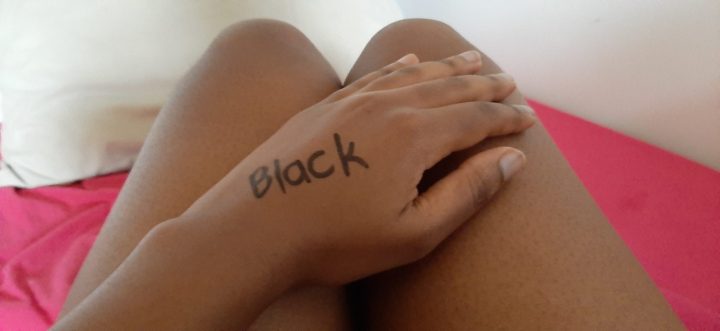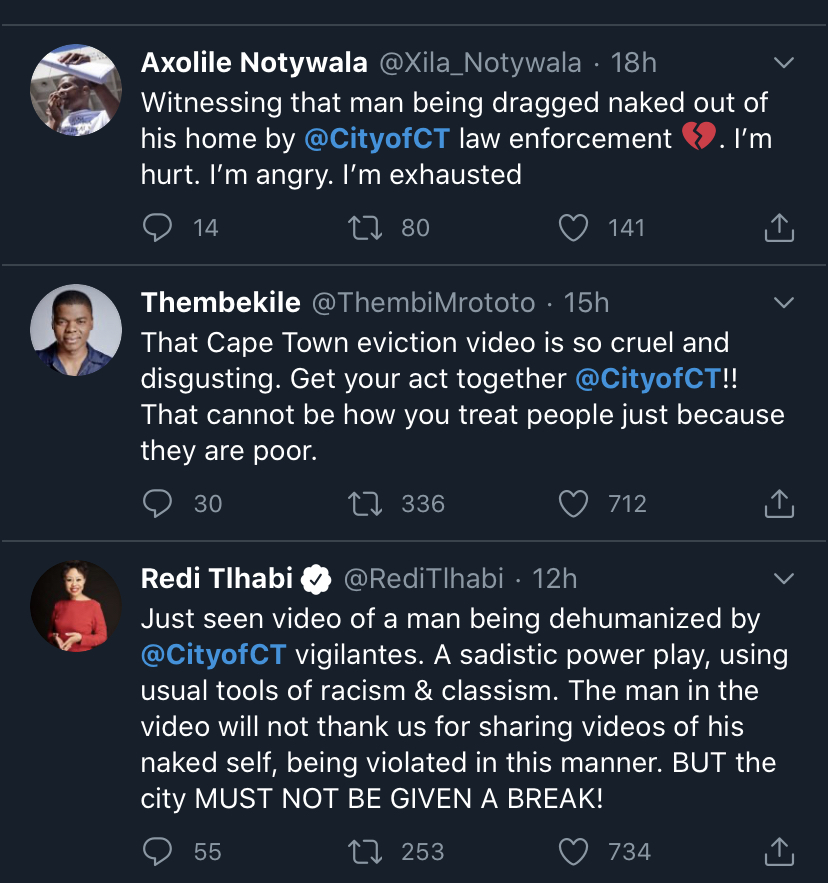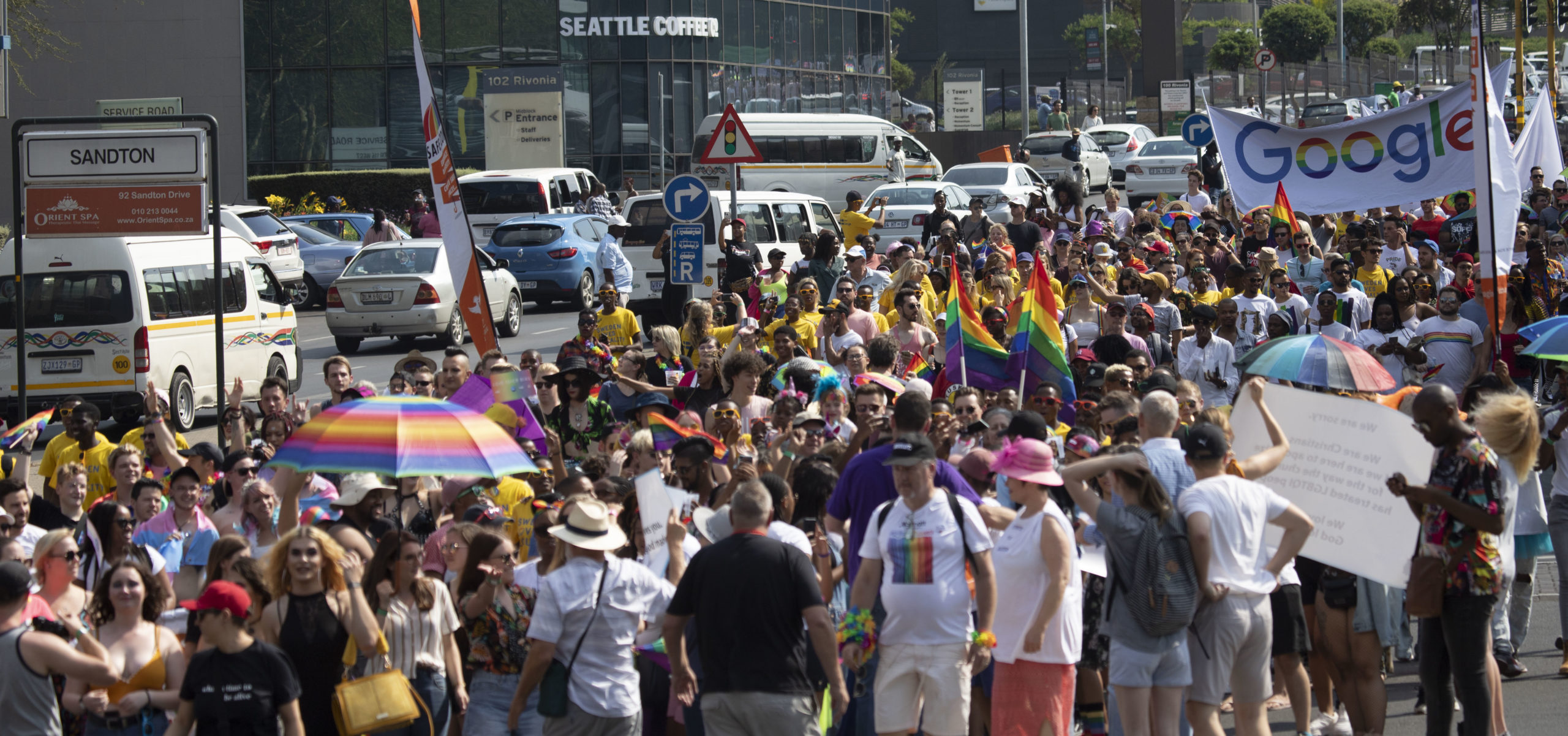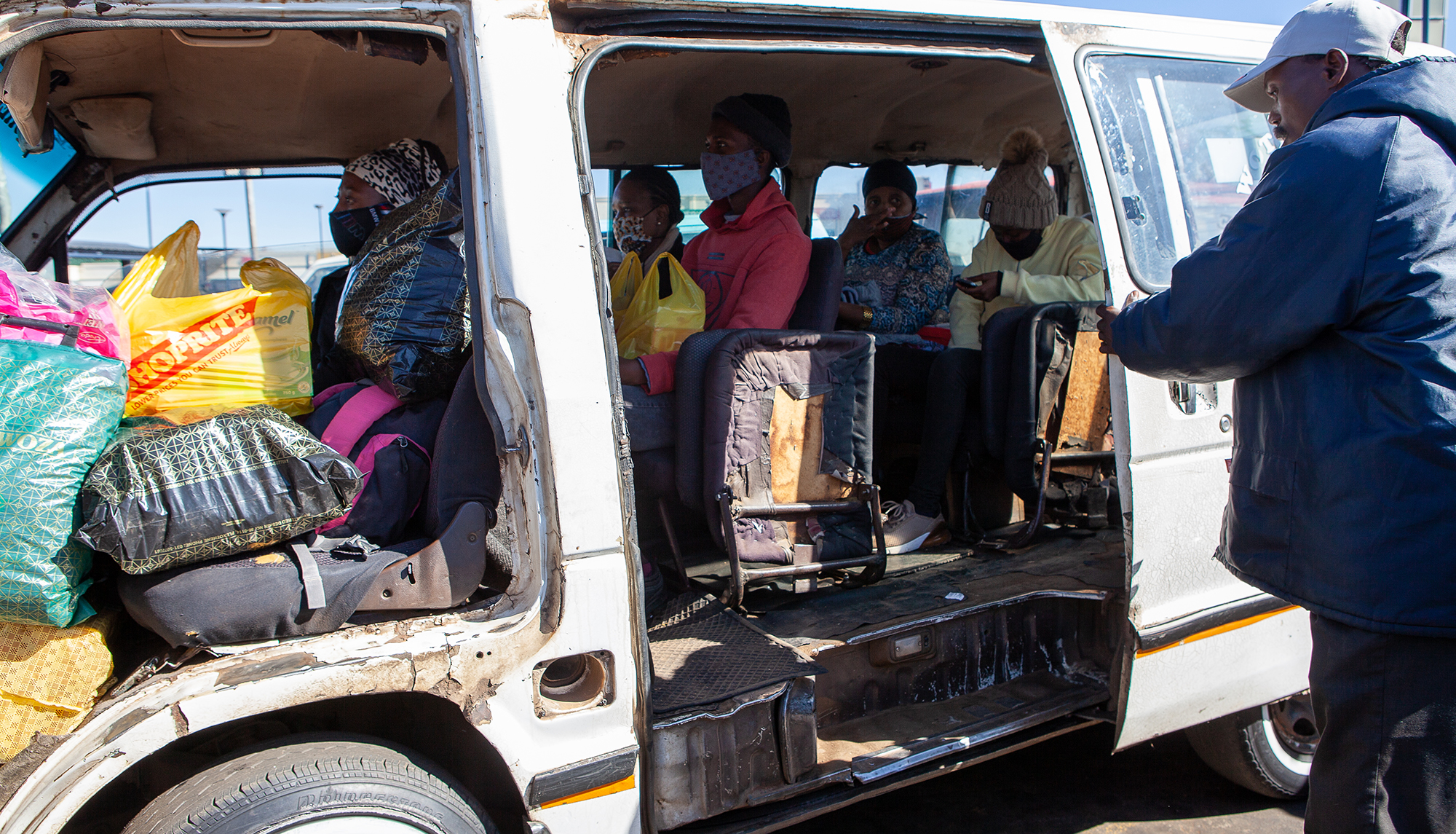Lockdown Reflections: Day 98
Evictions, hunger and heartbreak: It’s still a hard lockdown

South Africa went into a hard lockdown on Friday 27 March in the hope of blocking the spread of Covid-19. The lockdown was extended for two weeks, then the country started slowly opening up. Currently, at Level 3 of lockdown, coronavirus cases have spiked correlating with South Africans’ dwindling appetite for following regulations. These reflections are part of a series by Young Maverick writers monitoring stay-at-home life in various neighbourhoods.
A dehumanising eviction
Rondebosch, Cape Town: Lying in bed last night, I watched a peaceful protest unfold on Facebook, live. Activists had descended upon Malusi Booi’s (City of Cape Town mayco member for Human Settlements) residence demanding that the City rectify a gross injustice that happened earlier in the day.
A video circulated on social media of metro cops evicting a naked man from a shack during a demolition of informal dwellings in Khayelitsha. Apparently, the man was taking a bath when he was forced out of his home and tackled to the ground.
The City of Cape Town has to answer for this horrific scene. Not only is this a clear violation of basic human rights, but legally, was there a court order for this eviction? More so, why are evictions even taking place under lockdown?
Housing activists have repeatedly pointed out the infection risks people are being exposed to if left out on the streets. But again, let’s just linger on the violation of human rights.
How can you manhandle and humiliate another person in his vulnerable naked state? That is what you call dehumanising.
It’s dehumanising, especially at a time when the economy is struggling, when people have lost jobs, lost income, to be this insensitive to the poor. Where will people stay, when at the best of times many are already struggling to pay rent, let alone afford food.
Hhayi, City of Cape Town.
It’s not lost on me that I viewed these scenes from my phone while lying on my bed with a solid roof over my head. But I haven’t forgotten that I’m also black. That means that under different circumstances that shack could have been my dwelling, that man could’ve been my neighbour, could’ve been me.
Until our officials can empathise enough to see themselves in the faces of the poor, unnecessarily violent and humiliating acts will continue to unfold in this country.
The metro cops involved are “under investigation” and are on suspension. For now. What’s new?
Oh and in case you forgot: #JusticeforCollinsKhosa – Sandisiwe Shoba
It’s heartbreaking to see how many municipalities have completely disregarded regulations

The images and video of a Khayelitsha man being dragged out of his shack naked by law enforcement officials, has left many of us shocked and enraged. (Photo: Karabo Mafolo)
Mowbray, Cape Town: The end of June marks at least three months since we went into lockdown. Over the course of three months, we’ve seen many businesses close, families losing their income, children going hungry and the horrific stories of women, children and queer people being violently murdered.
In the midst of all of that, and the rising number of confirmed cases, it’s heartbreaking to see how many municipalities have completely disregarded regulations by evicting informal settlement residents. In eThekwini informal settlement, residents were shot, they claim that their houses were torn down, photographs taken by private security and used as evidence in court that their shacks were unoccupied or incomplete.
In Khayelitsha, a man was dragged out of his shack naked by law enforcement officers. In the evening, Khayelitsha Community Action Network was outside the MEC of human settlements, Malusi Booi’s house demanding answers.
It feels cruel that even in the middle of a pandemic when we’re all supposed to be keeping our distance, black people can’t escape being treated like this. It’s also infuriating to think that there are people whose lives are filled with this kind of violence and disregard for their dignity on a regular basis. – Karabo Mafolo
Finding refuge from the madness in the pages of a book

This book is one of my all-time favourite pieces of literature and as Covid-19’s increasingly menacing silhouette has loomed over the country, it has been my refuge. (Photo: Yanga Sibembe)
Johannesburg South, Gauteng: This week I have revisited my second favourite book of all time, The Curious Incident of the Dog in the Night-time by Mark Haddon. In case you’re wondering, my number one favourite book is Harper Lee’s To Kill a Mockingbird.
Anyway, I’ve read Haddon’s book countless times now (I stopped counting after the fifth read). The book zooms in on the life of 15-year-old Christopher Boone, who lives with Asperger’s Syndrome and understands very little about human beings and why they do the things they do. It really is a masterpiece and has never failed to make me laugh when I’ve read it.
Hence I had to revisit its beautiful and sometimes dark humour for refuge. This owing to the fact that over the past week I have observed how people who are either friends or acquaintances of mine have announced in shock that someone dear to them has tested positive for Covid-19, or has succumbed to it.
Social media too has been littered with posts of people bidding farewell to their loved ones as things take a sombre turn.
With the country comfortably clocking 7,000 new Covid-19 cases a day now, things look very bleak. On the other hand, it seems people are still defiant in living their lives as if everything is rosy. Social gatherings are aplenty, certainly considering we’re in the middle of battling a little-known virus that could mutate at any time. The recommended safety precautions of masks outdoors are ignored – it’s a sad state of affairs.
I fear that when we wake up and smell the coffee, it’ll be too late. Maybe not for ourselves, but for a loved one. – Yanga Sibembe
I miss covering crowded events

Johannesburg Pride of Africa stated that it has adopted a much bigger cause, by going beyond the parade. This year the organisers have strived to foster a culture of authenticity, acceptance, and support. (Photo: Chanel Retief)
West Rand, Gauteng: I started looking through old pictures that I took at the Johannesburg Pride Parade in 2019. It led me to pore over photographs that I got to take at rallies and marches and protests in 2019.
It’s amazing how in such a short time (it does at times seem longer) my mindset has completely changed.
I used to absolutely loathe having to go to stories that would put me in a position where there were large crowds and lots of walking (but that’s because I am naturally unfit). I used to feel like I was having the worst anxiety attack thinking about how I would have to shape a story from these sorts of marches, having no idea where to start.
Then I would go and have the most amazing time.
I think back to Pride 2019 in Sandton and can’t stop smiling. It was my first time. All I can remember is seeing colour everywhere with people cheering all around me.
What was even more spectacular and special was the message behind the theme for the parade – “Proudly African and Authentically you”. And in breathlessly walking all around Sandton you could see how everyone who attended embraced a culture of authenticity, acceptance and support.
I captured that happiness on camera.
Another moment I recall is when the Gauteng Economic Freedom Fighters (EFF) led more than 1,000 women on a march to five criminal justice state organisations, demanding the transformation of the judicial system to help eradicate gender-based violence (GBV).
I could feel the anger as I captured moments where women were shouting or singing or just silently walking during that Women’s Month march. I could feel how fed up the women were (still are) and how they had had enough of GBV being a fear factor in their daily lives.
Both marches were different but participants at both reflected one thing: Hope.
I think that’s what I miss most of all now months later sitting in yet another month of lockdown, is the hope that used to come from strangers.
I miss how I used to get anxious at first and then once I was at the event I would light up as if I was in my element.
Now the fear and anxiety I have when leaving the house makes the ones I used to have seem trivial.
It makes me think that when (if) we get back to normal, I won’t take any of that for granted. – Chanel Retief
Gross violations of lockdown regulations coincides with spike in infections

There was little adherence to safety protocols in Joburg on Monday 29 June as the taxi industry flouted the rules. (Photo: Gallo Images / Papi Morake)
Soweto, Gauteng: Violations of the lockdown regulations in Soweto began at the beginning of Level 3 when most people around the township began behaving as if things had returned to normal. As the days go by the violations have intensified, with many people drinking in groups freely and visiting relatives for functions.
The violations are so blatant that perpetrators shamelessly sell illegal cigarettes and share alcohol in full view of the police. The partial ban on alcohol is not adhered to. Alcohol is sold even on the prohibited days of Friday, Saturday and Sunday.
Social distancing has never been adhered to, even in Level 5, and people, in the absence of law enforcement, see no need for compliance.
Masks are seen by some as a symbol of oppression while others deny that Covid-19 is real. This as Gauteng becomes the new epicentre for the coronavirus – 42,000 infections and climbing.
To add insult to injury, the taxi industry is complicit in violating the regulations. On Monday, 29 June, taxi industry mother body, the South African Taxi Council (Santaco) ordered drivers in Gauteng and KwaZulu-Natal to load passengers at 100% capacity despite existing regulations requiring that all minibus taxis load at 70% capacity. Never mind the risk to their passengers, it’s not about them anyway.
We are in trouble. – Bheki Simelane DM



















 Become an Insider
Become an Insider